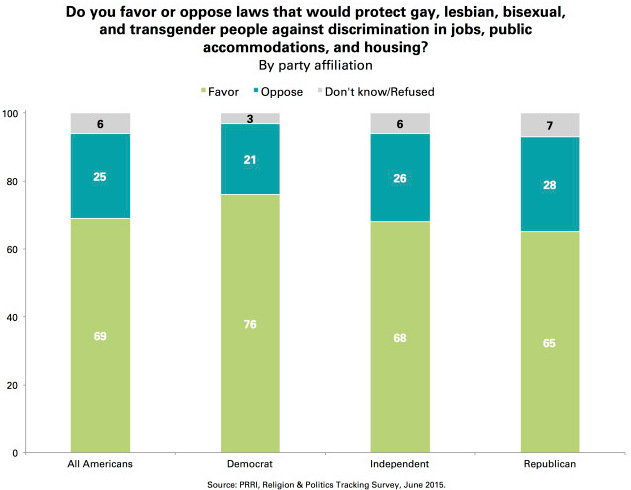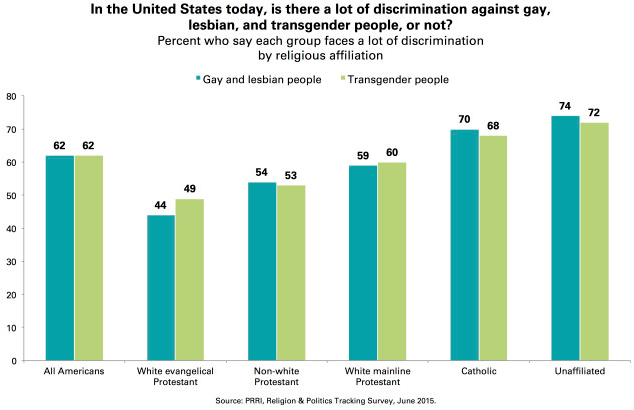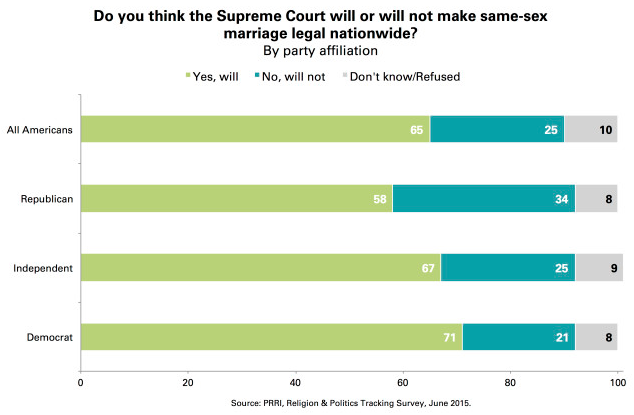Only a few months ago, it seemed the steady march of LGBT rights in the United States had hit a roadblock.
To gay rights advocates’ dismay, the Indiana state legislature passed the Religious Freedom Restoration Act in March, effectively allowing businesses to refuse products or services to certain patrons (read: LGBT customers) on the basis of the owner’s long-held religious beliefs. While 19 other states have RFRA laws on the books—the precedent for which was set with President Bill Clinton’s 1993 federal bill—Indiana’s new legislation has been decried as significantly more stringent than versions of the legislation introduced in other states.
Outcry from business and civic leaders over the RFRA forced Indiana lawmakers into introducing amendments explicitly prohibiting gender and sexuality-based discrimination before Governor Mike Pence signed the bill into law. But despite last-minute changes, the message for social conservatives is clear: Religious freedom can be a potent legal weapon against LGBT rights. And according to the National Conference of State Legislatures, 17 states have introduced legislation creating or amending RFRA laws in 2015 alone. Other states are clearly getting the message.
But while the logic of “religious freedom” may be legally sound, this argument is widely regarded as morally bankrupt, legalistic camouflage for hatred and fear. According to new research by the Public Religion Research Institute, 69 percent of Americans, regardless of political affiliation, favor laws that would “protect LGBT individuals against discrimination in jobs, public accommodations, and housing,” while 60 percent oppose permitting business owners to refuse services to LGBT customers—the discrimination at the heart of Indiana’s RFRA.

And it’s not just religiously unaffiliated Americans who are taking a stand: Most Christian Americans see this sort of discrimination as problematic as well; this, despite the bill’s ostensible roots in a defense of “religious freedom.” According to the PRRI data, 59 percent of white Protestants, 63 percent of non-white Protestants, and 64 percent of Catholics oppose refusals of service on the grounds of gender identity or sexual orientation (compared to 73 percent of religiously unaffiliated Americans). Only 34 percent of Americans support these policies.
In fact, it seems white evangelical Protestants are the only religious group to support this sort of discrimination, albeit by a slim majority (51 percent). “As national opinion has shifted toward support for LGBT rights, including among religious Americans, white evangelical Protestants are increasingly becoming an island of opposition amidst a sea of acceptance,” PRRI CEO Robert Jones said in a statement.
Even outside of the specific issue of prejudice in the workplace, most recognize that LGBT Americans face “a lot” of discrimination. Here, again, evangelical Protestants are the exception.

What’s behind this surge of public opinion against “religious freedom” laws? The answer may be relatively simple: The majority of Americans see same-sex marriage, the jurisprudential symbol of LGBT equality, as an inevitability. A recent Gallup poll showed that support for same-sex marriage jumped from 37 percent to 60 percent between 2005 and 2015. That’s a stunning reversal of public attitudes toward the LGBT community, led in part by younger Americans, who are mostly staunchly pro-equality. The PRRI data reflects as much: The majority of Americans see a Supreme Court ruling in favor of same-sex marriage later this summer as all but certain.

Social conservatives may push RFRA legislation in their home states as a stop-gap against the advancement of LGBT rights, but with same-sex marriage legal in 37 states and public opinion firmly against religious justifications for discrimination, it’s clear Americans can tell that arguments based on “religious freedom” will not stop the country’s ongoing march toward a more perfect union.





